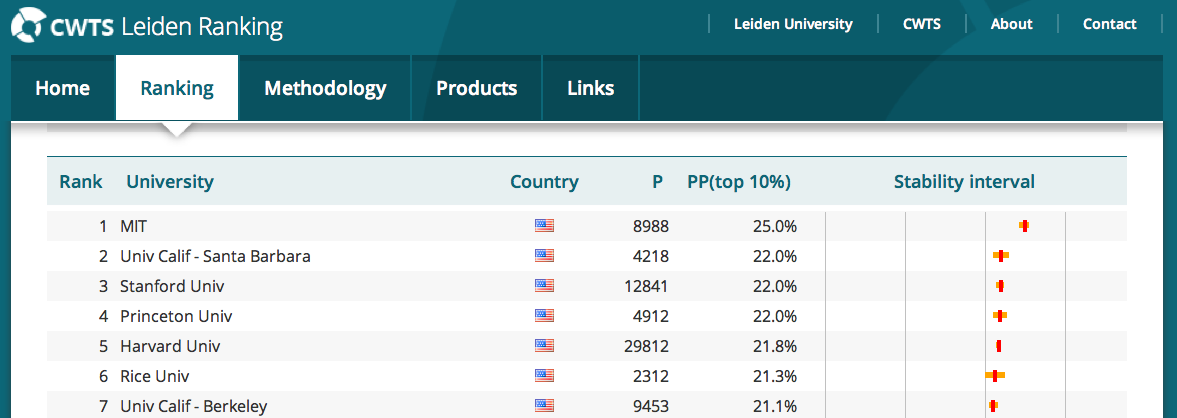Allyson Werner
Staff Writer
The University of California, Santa Barbara has placed second among the top 500 universities in the world according the Centre for Science and Technology Studies at Leiden University in the Netherlands, which aims to evaluate each university in terms of its impact in the field of sciences.
“The CWTS Leiden Ranking 2013 measures the scientific performance of 500 major universities worldwide,” states the Leiden rankings website. “Using a sophisticated set of bibliometric indicators, the ranking aims to provide highly accurate measurements of the scientific impact of universities and of universities’ involvement in scientific collaboration. The CWTS Leiden Ranking 2013 is based on Web of Science indexed publications from the period 2008–2011.”
UCSB ranks second only to the Massachusetts Institute of Technology (MIT), and this year ranked above traditional heavyweights Stanford University, Princeton University, Harvard University, Rice University, and the University of California, Berkeley. UCSB moved up a total of five spots since last year’s ranking.
Other UCs also made a significant appearance on the list. UC Santa Cruz ranked 11th, UC San Diego ranked 15th, UC Los Angeles ranked 25th, UC Riverside ranked 35th, UC Irvine ranked 44th, and UC Davis ranked 82nd. Certainly, the entire UC system has expressed reason to celebrate.
“We are very proud of UC Santa Barbara’s number two ranking in Leiden University’s four-year study of the top 500 universities in the world,” said UCSB’s Chancellor Henry T. Yang. “Such recognition is a resounding affirmation of our faculty’s unwavering commitment to excellence. The high citation rate of our colleagues’ publications in prestigious journals reflects the far-reaching impact of the research being conducted on our campus.”
The Centre for Science and Technology Studies at Leiden University in the Netherlands uses a variety of methods to assess impact on the sciences. The CWTS Leiden Ranking 2013 is based on data from the Web of Science bibliographic database produced by Thomson Reuters. The data collection procedure consists of two rounds to avoid error.
Impact is then evaluated via several different indicators, such as the average number of citations of the publications of a university.
Students throughout the University have expressed excitement about UCSB’s recent success.
“I was drawn to UCSB because of the amazing amount of research that goes on in the Mathematics Department,” said a future PhD student in the field of mathematics who wishes to remain unnamed. Certainly, UCSB’s second-place ranking will attract prospective students, especially those interested in the sciences and mathematics. Although not clearly indicated, the Leiden Rankings do evaluate research in mathematics.
Other students shared their excitement by posting the ranking on their Facebook walls and other social media sites. Even students not involved in the sciences expressed their enthusiasm.
Another student who also wishes to remain unnamed acknowledged the excellent research conducted by the faculty here at UCSB; however, he also warned that the ranking does not necessarily reflect the quality of teaching that occurs here on campus. Other types of rankings could potentially better serve this purpose.
Screenshot courtesy of www.leidenranking.com












Comments are closed.